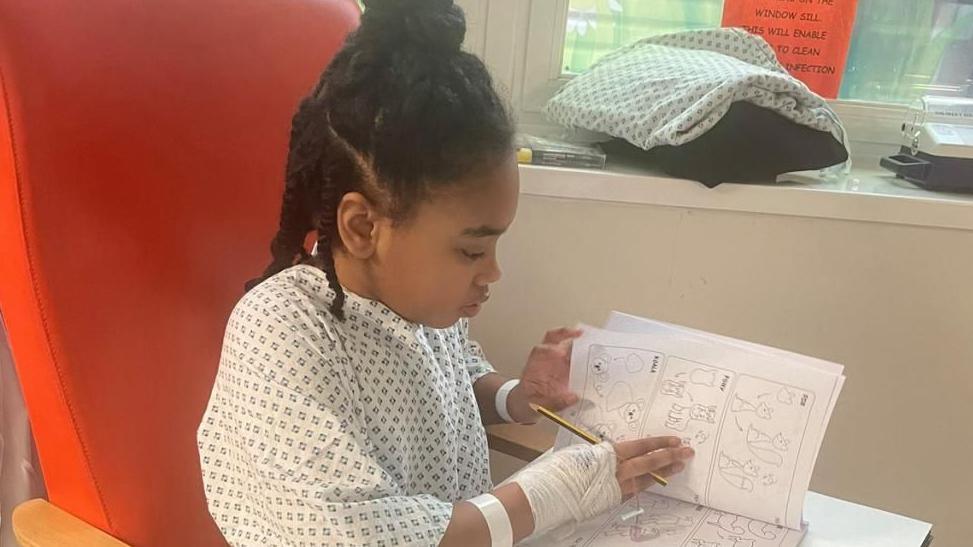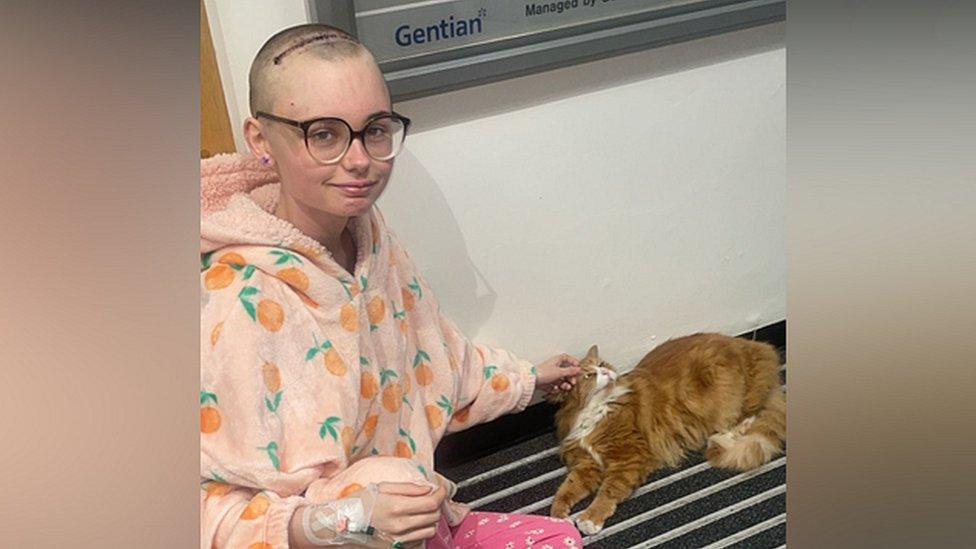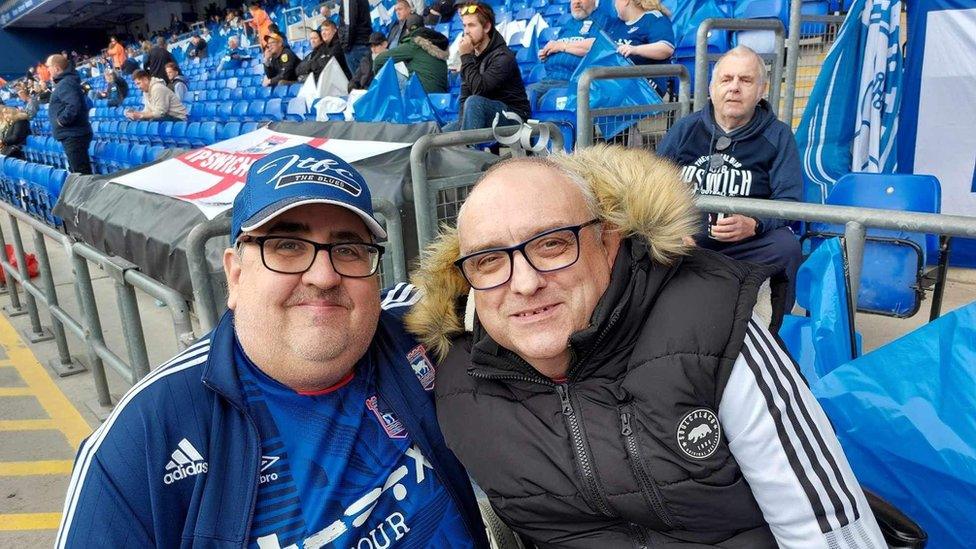Girl's brain tumour misdiagnosed for three years

Tia had been ill for years before her brain tumour was diagnosed
- Published
A mother has told how her daughter was misdiagnosed and assessed more than 30 times by doctors before she was told she had a brain tumour.
Tia Gordon, 11, from Northampton, first became ill in March 2020 but was given painkillers for stomach bugs and migraines - and had her glasses prescription changed four times.
Her mother Imogen Darby said it was not until Tia began having difficulty walking that an emergency CT scan revealed a 3.5cm (1.4in) tumour.
Tia is now undergoing physiotherapy and is keen to get back to a normal life, Ms Darby said, after surgery earlier this year saw 96% of the benign tumour removed.
Ms Darby, a pharmacy dispenser, said that during the first coronavirus lockdown, Tia had started being sick every few months, then monthly, then more frequently.
"It felt like I was calling them [medics] and going there constantly," she said.
After a year, Tia was prescribed paracetamol - but her condition worsened.

Tia's mother said she was looking forward to getting back to normal activities
"She finally got referred to paediatrics and months later we had an appointment. That's where we were at - it was desperate stakes," said Ms Darby.
In the few months before the diagnosis, she said she took Tia to a GP "about 10 times" and called NHS 111 about three times.
"I took her to A&E and I was told she had a stomach bug and told to kind of just leave her to it," she said.
However, Tia then developed new symptoms.
"Tia was holding her neck funny," Ms Darby explained.
Her daughter's neck was stiff for weeks, but the doctor said it was probably from her sleeping position and "she just needs to move her neck around".
She was later referred for physiotherapy.
A consultant told the family she would do an MRI scan for peace of mind but the waiting list would be months' long, Ms Darby said.
From then on, Tia was being sick most mornings and from November 2023 to January 2024 she vomited every day.
Her mother noticed her daughter was "a little wobbly" from time to time, then "Tia's school phoned to say she was holding her neck strangely and was a bit off balance".
"I called the paediatric consultant and just said, 'something's not right with Tia'," she said.

Tia's mother Imogen had been concerned about her daughter's health for years
Ms Darby was told to take Tia to Northampton General Hospital that evening. The little girl was unable to walk in a straight line.
A CT scan revealed Tia's tumour was a pilocytic astrocytoma - the most common type of childhood brain tumour.
An operation at the Queen's Medical Centre in Nottingham lasted more than 10 hours.
'Ongoing care plan'
"Over more than three years, I took Tia to doctors, she was refused MRIs, she was refused to be seen by emergency paediatrics, I called 111, I went to A&E, she had her glasses changed four times, she was given medication and she had a consultant, but it took for her to be unable to walk for her to get the care she needed," her mother said.
Tia still gets very tired and her balance is sometimes affected but she has an ongoing care plan which includes an MRI scan every three months for the next five years, physiotherapy and regular appointments with neurologists.
Cameron Miller, director of external affairs and strategy at the Brain Tumour Charity, said Tia's story is "sadly, one that we often hear".
"For many brain tumour patients, it simply takes too long to be diagnosed - and this is one of the reasons why we're calling for a National Brain Tumour Strategy, external."
The NHS was asked to comment.
Follow Northamptonshire news on Facebook, external, Instagram, external and X, external. Got a story? Email eastofenglandnews@bbc.co.uk, external or WhatsApp us on 0800 169 1830
Related topics
You may also be interested in
- Published1 April 2024

- Published11 April 2024

- Published25 March 2024
